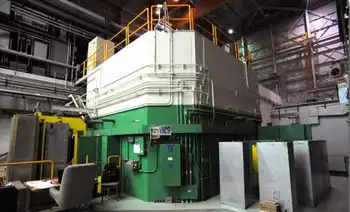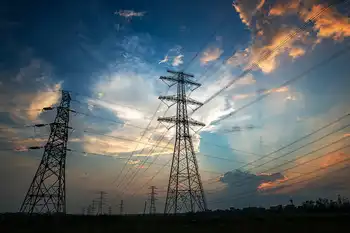DRCC now ADS to reflect smart grid focus
By PR Newswire
CSA Z462 Arc Flash Training - Electrical Safety Essentials
Our customized live online or in‑person group training can be delivered to your staff at your location.

- Live Online
- 6 hours Instructor-led
- Group Training Available
Tim Roughan, Director of Product Management for National Grid and Chairman of DRCC/ADS, said the change made sense at this point in time. "Over the past 10 years, there has been tremendous growth in the number of individuals that refer to themselves as demand response and smart grid professionals, yet there has been no organization for these people to join as individuals," said Roughan.
The DRCC is a 501 c 3 nonprofit organization whose mission has been to increase the knowledge base in the U.S. on demand response and to facilitate the exchange of information and expertise among demand response practitioners and policy makers. It later adopted smart grid as part of its charter as it recognized early that demand response and smart grid were necessarily intertwined, and that demand response was one of the primary ways that the smart grid would be "put into action." Since the DRCC formed in 2004, it has offered only corporate and organizational memberships.
As of the week of March 14, 2011, the DRCC will be known as the Association for Demand Response & Smart Grid ADS. Technology companies, utilities, nonprofit organizations, academic institutions, and other entities will be welcome to join as group members, but ADS will also be a membership association for demand response and smart grid professionals.
Dan Delurey, Executive Director of ADS, commented on the organizational change.
"We have received a number of requests over the years from individuals who wished to join DRCC," said Delurey. "We unfortunately were not structured to accommodate them, but with this change to ADS, we are offering a 'home base' for DR and smart grid professionals."
Roughan added, "We are especially excited about how ADS will be related to two of our signature efforts right now. First, the National Town Meeting on Demand Response and Smart Grid — which will be held this year on July 12-14 in Washington, D.C. — will now be the annual meeting for ADS members as well as other interested parties. Second, individuals and groups joining ADS will automatically have the opportunity to get involved in the National Action Plan on Demand Response Coalition NAP, which ADS is spearheading."
Members of ADS will receive free or discounted registration to ADS events, including the National Town Meeting on Demand Response and Smart Grid. In addition to participation in the NAP Coalition, members will have opportunities for participation in workgroups and on subcommittees, and have many chances to work and interact with demand response and smart grid professionals throughout the United States.
ADS has two levels of membership available: individual and group. Individual ADS members include employees of utilities, ISOs, technology companies, government agencies, legislative and regulatory bodies, and academic institutions. ADS members are engineers, economists, educators, consultants, regulators and legislators, as well as marketing and communications professionals. Group members include utilities, ISOs, RTOs, technology companies, service companies, consulting firms, academic institutions, and other organizations working in or interested in the DR and smart grid area.
To become a member or learn more about ADS, visit www.demandresponsesmartgrid.org











